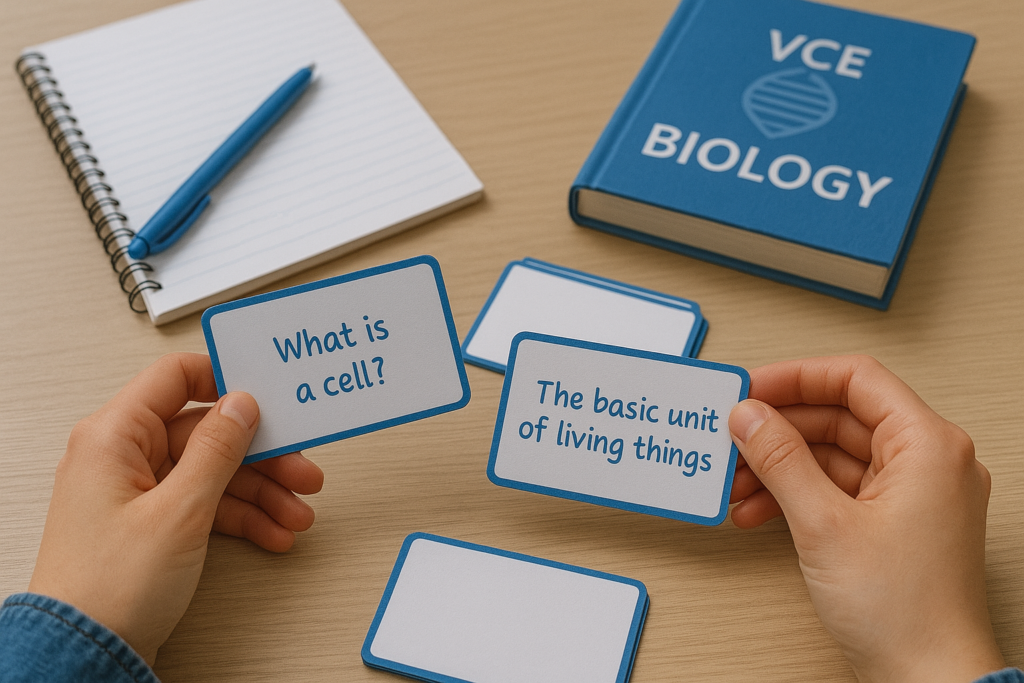Exams can feel overwhelming — but they don’t have to be. Whether you're studying for Year 10 assessments, VCE, HSC, or another state curriculum, having the right study techniques can help you feel in control, prepared, and confident.
This guide combines Learnmate’s top-performing study strategies with proven academic techniques to help you revise smarter, not harder. These aren’t just tips from a textbook — they’re drawn from real tutoring experiences and what works best for students just like you.
1. Start Early — Don’t Cram
We get it — starting early is easier said than done. But research and real-life tutoring data show that spacing out your study over time helps your brain absorb and retain information better than a last-minute cram.
By beginning your revision 3–5 weeks before your exams, even just 30–60 minutes a day can build up to big results. The key is consistency. Learnmate recommends using a weekly study planner to break down your subjects, prioritise your weaker areas, and ensure you’re not leaving everything to the last minute.
Learnmate Tip 💡 Aim to finish your first round of revision at least one week before exams, so you have time for practice exams and active recall.
2. Get Organised with Your Materials
Before you dive into revising, take time to gather and organise your notes. Having subject folders (either physical or digital), past papers, handouts, and textbooks in one place saves time and stress.
Create a separate file for each subject and break it down into topics. For example, if you're doing Year 12 Biology, have folders for Genetics, Evolution, Cells, etc. Then use highlighters or tabs to mark key content.
Learnmate Tip 💡 If you’re missing class notes, ask a friend or tutor to help you fill the gaps. Reviewing incomplete notes is one of the top reasons students feel unprepared.
3. Build a Realistic Study Timetable
No study guide is complete without a plan. A realistic study timetable makes it easier to stay on track and builds momentum.
The most effective study plans:
- Are written weekly and reviewed daily
- Include all subjects — not just your favourites
- Allocate time for breaks, meals, and exercise
- Allow for flexibility when unexpected things come up
Learnmate offers a free Weekly Study Timetable template that’s been used by hundreds of students with success.
Learnmate Tip 💡Also try Learnmate's Eisenhower Matrix to prioritise your tasks. Focus on what’s urgent and important to avoid panic before exams.
4. Set Clear, Daily Study Goals
Instead of vague goals like “study Maths,” aim for specificity:
- Complete 15 questions on trigonometry
- Write one Language Analysis paragraph
- Summarise the digestive system in dot points
This gives your brain a clear target and helps you feel a sense of progress — which keeps motivation high.
Learnmate Tip 💡Try the “3 Things Rule” — pick three key tasks to finish each study block. No more, no less.
5. Use Active Recall (Don’t Just Re-Read!)
Reading and highlighting your textbook might feel productive, but studies show Active Recall is far more effective for memory. This means actively testing yourself instead of passively reading.
Try these methods:
- Cover and recall: Read a page, cover it, and try to write everything you remember
- Teach it: Explain a concept to a friend or sibling as if you’re the tutor
- Flashcards: Use tools like Anki or Quizlet for subjects like Psychology, History, or Science
Learnmate Tip 💡Active Recall is even more powerful when paired with Spaced Repetition — reviewing content at regular intervals, increasing over time.
6. Apply the Pomodoro Technique
The Pomodoro Technique is a game-changer, especially if you struggle with focus. It involves:
- 25 minutes of focused study
- 5-minute break: After 4 sessions, take a longer 20–30 minute break
This method helps reduce burnout and keeps your brain alert. Bonus: You’ll probably finish more in less time.
Learnmate Tip 💡Learnmate recommends a different take on the Pomodoro Technique for deeper learning and to expand your focus in line with exam conditions - try multiples of the Pomodoro, such as 50 minutes of study, 10 minutes or go even further with 1hr 40 minutes of deep learning and 20 minutes off. Apps like Forest or Focus Keeper can help you track Pomodoro sessions.
7. Practice Past Papers Under Exam Conditions
Nothing beats doing the real thing. Practicing past exam questions under timed conditions is one of the most effective ways to boost exam confidence.
It trains your brain to recall under pressure and helps you spot gaps in your understanding. Aim to do:
- At least 2 full practice exams per subject, ideally being the two most recent official exams for the subject
- Topic-specific questions in weaker areas
- A review of examiner reports (for insight into common mistakes)
Learnmate Tip 💡Mark yourself using official marking guides. Learnmate tutors often go through these in sessions to show what examiners look for.
8. Use Visual Aids (Mind Maps, Flowcharts & Diagrams)
Not everyone learns by reading or listening. Visual learning can help you see connections, summarise large topics, and boost memory.
Try:
- Mind maps for big-picture thinking (e.g., themes in English texts)
- Flowcharts for step-by-step processes (e.g., scientific methods)
- Diagrams for things like Biology organs or Physics forces
Learnmate Tip 💡Students who combine visuals with Active Recall often score higher in conceptual subjects like Science and Humanities.
9. Study with a Group or a Tutor
Studying with friends or a tutor helps you:
- Stay accountable
- Learn from different perspectives
- Clarify doubts in real-time
- Explain ideas out loud (reinforcing memory)
Many students on Learnmate find that weekly tutoring sessions keep them on track — especially in the lead-up to exams. Tutors can help structure revision, provide extra resources, and boost confidence.
Learnmate Tip 💡If you can’t study in person, or there aren't local tutors near you, try finding an online tutor and join a Zoom study group or online tutoring session.
10. Take Care of Your Body and Mind
You can’t perform your best if you’re running on caffeine and 4 hours of sleep. During exam time, it’s vital to:
- Sleep 7–9 hours a night
- Eat regular, balanced meals
- Stay hydrated
- Move your body (even a 10-minute walk helps!)
Try stress-reducing habits like journaling, listening to music, or even a quick mindfulness app before bed.
Learnmate Tip 💡The best students aren’t always the ones who study the most — they’re the ones who study smart and take care of themselves.
Every student is different, but the strategies that work tend to have a few things in common: planning, consistency, and reflection. Whether you're aiming for a top ATAR or just want to feel more in control this exam season, don’t go it alone. Learnmate tutors are here to support you every step of the way — from study strategies to subject expertise.
Need help preparing for your exams?
You can connect with a subject expert today on Learnmate and get personalised support that suits your study style and goals.





